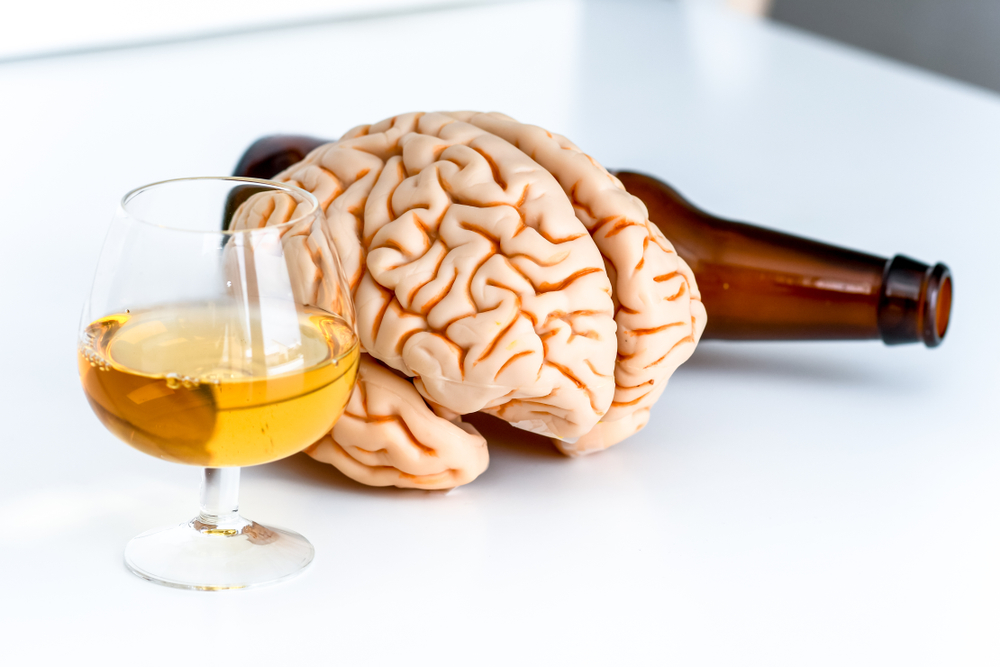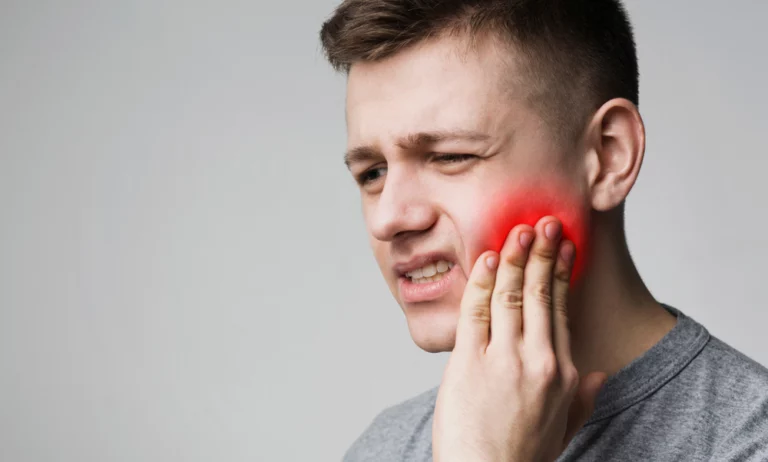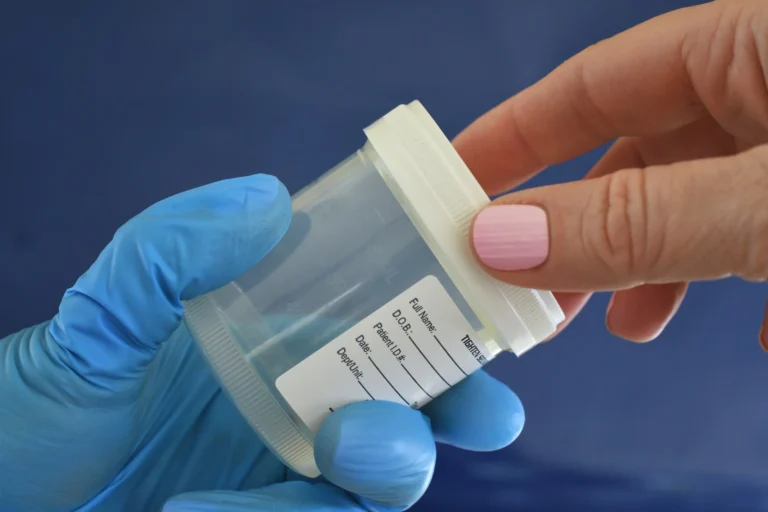North Carolina has a serious issue with binge drinking and the devastating health effects that come with it. According to recent studies, nearly 16% of NC adults over 18 binge drink at least once a month, consuming a median of 5-7 drinks per binge. The most frequent bingers drink almost 5 times a month.
This excessive alcohol use contributes to over 4,400 deaths in NC annually, a rate that’s increased by over 50% in just 5 years. For every 2,345 adults, one will die from alcohol abuse – 70% of those are men.
Beyond the shocking mortality rates, binge drinking wreaks emotional and mental health havoc. The highs and lows of alcohol flooding and leaving your system can cause intense alcoholic mood swings, from aggression and anxiety to giddiness and depression.
This article will explain alcoholic mood swings & connect the dots between alcoholism and mood disorders.

What are Alcoholic Mood Swings
Alcoholic mood swings are the ups and downs in emotions and energy levels from drinking. One minute you’re up; the next, down.
When you drink, alcohol impacts the parts of your brain responsible for emotional regulation. It causes abrupt changes in neurotransmitters like serotonin that control your mood. This results in emotions that intensify, fluctuate and spin out of control.
You may feel carefree and happy one moment, then sad, angry, or anxious the next. These rapid changes in mood and temperament are alcoholic mood swings. They can make you act in ways you normally wouldn’t when sober.
The ups and downs tend to intensify the more you drink as your blood alcohol level rises and falls. Hormones like cortisol also play a role, spiking and dropping in response to alcohol consumption.
The unpredictability of alcoholic mood swings and not knowing how you might feel, or act can be troubling and upsetting. The impact on relationships and quality of life may encourage some to make positive lifestyle changes to avoid these highs and lows. Understanding what’s behind the alcoholic mood swings is the first step.

How Does Alcohol Affect Your Brain And Mood?
Alcohol causes drastic changes in your brain chemistry that lead to mood swings. When you first start drinking, alcohol increases feel-good neurotransmitters like dopamine and serotonin, giving you that relaxed, mellow feeling.
But with continued drinking, your brain struggles to produce these chemicals, causing low moods and irritability. Alcohol also impacts GABA and glutamate, neurotransmitters involved in regulating emotions. Disrupting them can cause mood swings and disorders.
The CDC says excessive alcohol contributes to over 115,000 deaths yearly, mostly from health issues like alcohol use disorder or AUD. Over 82% of these deaths are in people 35 and older, though 3% are under 21.
While moderate alcohol use may not severely impact your mood, frequent or binge drinking can damage your brain, ruining its ability to properly regulate your emotions and experience pleasure naturally. This “emotional rollercoaster” takes a major toll on your mental and physical health.
Short-Term Effects of Alcohol on Someone’s Mood
Short-term alcohol use affects your mood and emotional state in many ways. After just a drink or two, you may feel more relaxed and less inhibited. This is due to alcohol’s depressing activity in your brain areas involved with self-control and judgment. Some common short-term effects of alcohol on someone’s include but are not limited to:
- Euphoria
- Reduced inhibition
- Increased talkativeness
- Lowered anxiety
- Enhanced mood
- Temporary stress relief
- Heightened emotional sensitivity
- Impaired judgment
- Mood swings
- Risk of aggression
- Disinhibition
- Emotional instability
Long-Term Effects of Alcohol on Someone’s Mood
Long-term alcohol use takes a major toll on your mood and emotional well-being. After years of drinking, the temporary “highs” you once felt turn into unpredictable mood swings that are hard to escape. Some common short-term effects of alcohol on someone’s include but are not limited to:
- Depression
- Anxiety
- Irritability and aggression
- Emotional numbness
- Decreased resilience
- Sleep disturbances
- Isolation and loneliness
- Cognitive impairment
- Apathy and apathetic depression
- Negative impact on existing mental health disorders
Is Alcohol Related to Other Mood Disorders?
Alcohol use disorder and mood disorders like depression or bipolar disorder are often closely linked. Many people who struggle with alcohol abuse do so in an attempt to self-medicate symptoms of an underlying mood disorder.
The relationship between alcohol and mood is complex. Drinking initially acts as a stimulant, releasing feel-good chemicals in the brain that can temporarily improve your mood or reduce anxiety. However, as alcohol leaves your body, it leads to a ‘crash’ in mood and the return of depressive symptoms. This cycle of ups and downs in mood and energy creates emotional instability and chaos.
Long-term excessive alcohol use also negatively impacts mood by altering brain chemistry. It reduces the availability of neurotransmitters like serotonin that regulate mood and stress, making you increasingly prone to swings between mania and depression. The brain’s damage to these mood-regulating systems persists even after you stop drinking, which is why mood disorders can continue long into sobriety.

Alcohol Withdrawal and Mood Swings
When you stop drinking after heavy or prolonged use, your body and mind need time to function without alcohol. This adjustment period is known as withdrawal and often brings unpleasant physical and emotional symptoms.
Mood swings and irritability are common during withdrawal. One minute you may feel anxious or depressed. The next is anger or elation. These unpredictable changes in mood and temperament are the result of your brain chemistry trying to stabilize itself without the influence of alcohol.
The severity and duration of mood swings and other withdrawal symptoms depend on factors like how much and how often you are drinking, your mental health, and whether you experience withdrawal frequently. The mood swings should lessen over the course of a week to a month as your body and mind adapt to sobriety.
However, if your symptoms feel unbearable or last more than a few weeks, consider speaking to a doctor about treatment options to help make you more comfortable during this transition. With patience and self-care, mood swings from alcohol withdrawal will pass.
How to Recognize the Signs of Impending Alcohol Mood Swings
The ups and downs of alcoholic mood swings can be difficult to navigate. Pay close attention to these warning signs that your loved one may be struggling with impending alcohol-induced mood changes:
- Watch for drastic shifts in mood that seem out of character, like sudden anger, giddiness, or sadness. Mood swings from alcohol disrupt the brain’s neurotransmitters responsible for regulating emotions.
- Notice if their sleep schedule is off. Too much or too little sleep can intensify mood swings. Lack of sleep also impairs emotional regulation.
- Look for changes in appetite or eating habits. Erratic eating can influence blood sugar levels and stress hormones, exacerbating mood changes.
- Be aware of social withdrawal or isolation. Pulling away from others may indicate your loved one is trying to hide frequent mood swings or the amount they’re drinking.
- Check if responsibilities are being neglected. Difficulty following through at work or home could signal mood disruptions from increased alcohol use.
By recognizing these signs, you’ll be better equipped to offer your loved one compassion and support. Let them know you’ve noticed changes in their mood or behavior, and you’re there to help in a caring, nonjudgmental way. Your support can make a world of difference.
Treatment Options of Alcohol Abuse and Mood Swings
Treatment for alcohol abuse and the mood swings that come with it typically involves a combination of medication and talk therapy.
Medication
Antidepressants or anti-anxiety medications may be prescribed to help stabilize your mood and reduce symptoms like irritability, sadness, or restlessness. Disulfiram or naltrexone can also be used to reduce alcohol cravings. The medication needs to be closely monitored by a doctor to determine its effectiveness and proper dosage.
Therapy
Speaking with a therapist or counselor, individually or in a group setting, can be very helpful for gaining insight into the root cause of your alcohol abuse and learning skills to better manage your moods. Cognitive behavioral therapy focuses on changing unhealthy thought and behavior patterns.
Motivational interviewing helps build motivation and commitment to change. Support groups provide empathy and advice to others struggling with similar issues.
Coping With Alcoholic Mood Swings as a Loved One
As the loved one of an alcoholic, coping with their unpredictable mood swings can be challenging and emotionally draining. You may feel like you’re constantly walking on eggshells, unsure of how they might react or what might set them off. Some things to keep in mind:
- Their moods are not your fault. Do not blame yourself for their emotional outbursts or let their hurtful words get you down. Their mood swings are a symptom of their illness.
- Do not engage or argue when they are in a rage or irritable mood. Remain calm and do not fuel the fire. Walk away if you feel unsafe.
- Seek your support. Connecting with others in similar situations can help lift your spirits and provide guidance. Consider joining a support group for loved ones of alcoholics.
- Take a break when you feel overwhelmed. Make sure to practice self-care by exercising, pursuing hobbies, and engaging in relaxing activities. You need to recharge so you can be strong for them and yourself.
- Express your concern for their well-being when they are sober and calm. Let them know their mood swings are difficult to handle and that you want to see them get help. Be prepared for various reactions, but sharing your feelings is important.
Getting Professional Help for Alcoholic Mood Swings
Getting professional help for alcoholic mood swings is critical. Call Asheville Recovery Center today at (828) 518-6996 . We are here for you. Our caring staff understands the difficulties of dealing with alcoholic mood swings and are specially trained to provide compassionate support.
Don’t suffer alone. Reach out for help right away. With the right treatment and support, you can gain control over your moods and start living a happier, healthier life.






